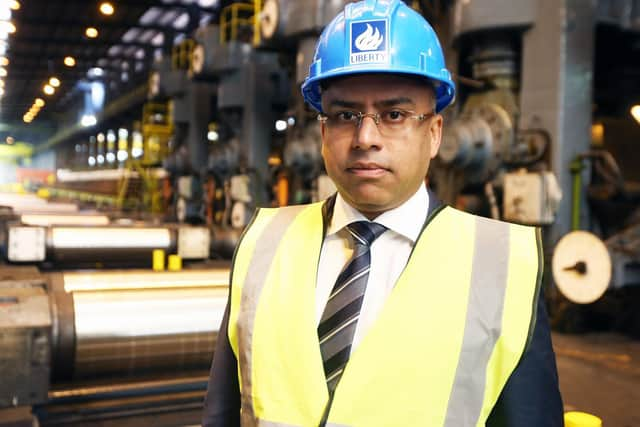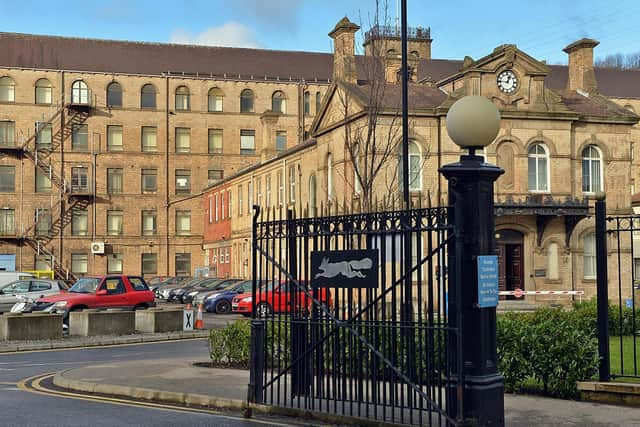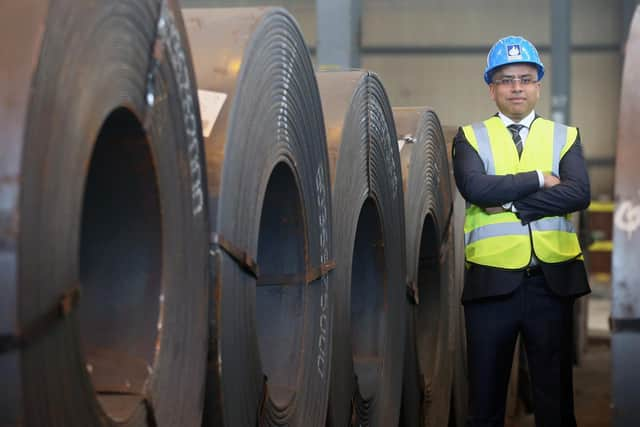Crisis must end our reliance on imports, says Liberty Steel boss
Sanjeev Gupta, owner of Liberty Steel, said that a desire from British industry to use basic materials made in Britain will be a “lasting legacy” of the pandemic and said the number of people employed in the steel industry in Yorkshire could expand rapidly if the nation refocused its desire to use domestic commodities.
Speaking exclusively to The Yorkshire Post, Mr Gupta, whose firm has several facilities in South Yorkshire and Teesside, said the crisis had been a wake-up call to industry about over-reliance on imports and said that Yorkshire was well-placed to facilitate any surge in demand.
Advertisement
Hide AdAdvertisement
Hide Ad“Just over 9,000 people are employed in steel in Yorkshire and Humberside,” he said.


“They’re good, well-paid jobs and each one typically support six more in the wider economy. For many years, that number has been falling but it doesn’t need to be. A striking aspect of this pandemic is that it’s refocused minds on local supply chains – with travel and trade disrupted, people are re-discovering the need for British infrastructure, construction, industry to rely on
British-made foundation materials, including steel.
“There’s a real opportunity to create steel jobs if the industry invests in technologies for the future.”
Mr Gupta said that he believed the number of people employed in the region’s steel sector could rise above five figures and beyond but that this was reliant upon Government providing assistance to the industry during the crisis.


Advertisement
Hide AdAdvertisement
Hide AdWith the UK economy losing billion of pounds everyday during lockdown, a downturn seems inevitable. However, Mr Gupta believes that development projects will still go ahead as a means of kickstarting a recovery.
“We’re a bit more optimistic,” he said.
“We believe this crisis will lead to greater demand for steel. First of all, many of those national infrastructure projects will go ahead because they’ll provide just the stimulus our economy needs to create jobs and get us out of this crisis.
“Second, Britain can’t put off investment in environmental infrastructure – wind farms, hydro and nuclear projects for example – because we’ve got a legal obligation to go carbon neutral by 2050.


“And third, Covid-19 has forced British industry to look closer to home to secure its supply chain – the struggle to secure ventilators and personal protective equipment, even the lack of people to pick fruit in our fields – all of these have been a wake-up call about our dependence on imports.
Advertisement
Hide AdAdvertisement
Hide Ad“I think a renewed desire to produce basic materials in Britain will be a lasting legacy of this crisis.”
The lockdown has meant a predictable drop in demand for Liberty’s products and last month it placed 200 of its staff in Rotherham on furlough.
However, Mr Gupta insists that Liberty was continuing to play a social role during the crisis with its remaining workforce.
He said: “Liberty’s steelworks have provided an extra 60,000 metres of metal tubing for beds, trolleys and wheelchairs used by the NHS – including in temporary Nightingale hospitals.
Advertisement
Hide AdAdvertisement
Hide Ad“From across the industry, there have been donations of protective equipment – including facemasks – to the NHS.
“Our steel blades are used in scalpels in hospitals – and then there are less glamorous, but still important, activities.
“This is a crisis that’s come out of nowhere and we recognise that everybody is doing their best to keep the economy afloat.”